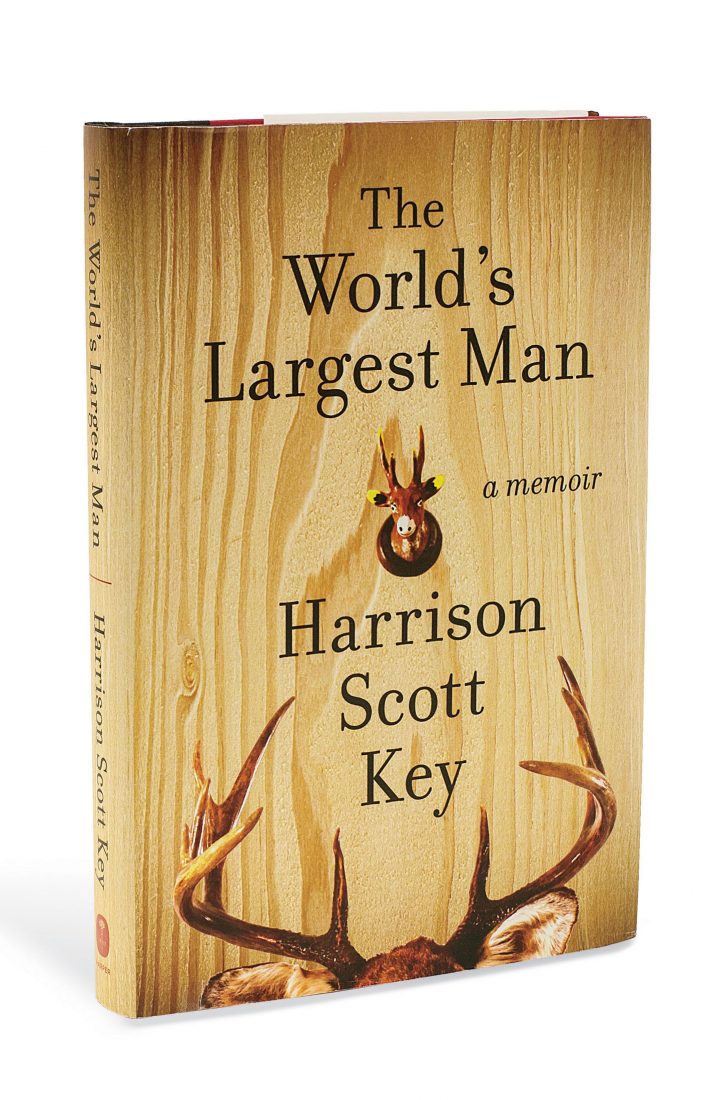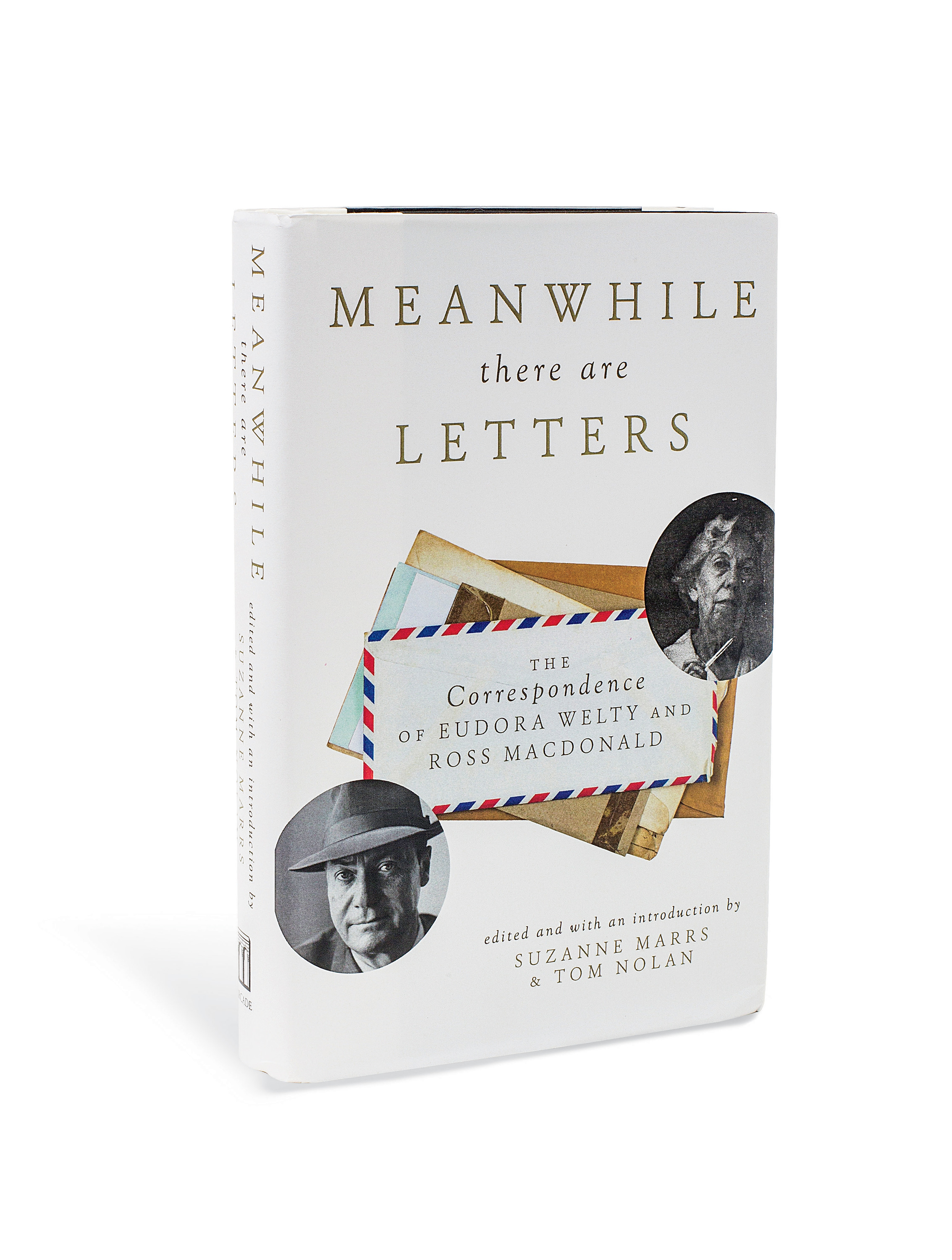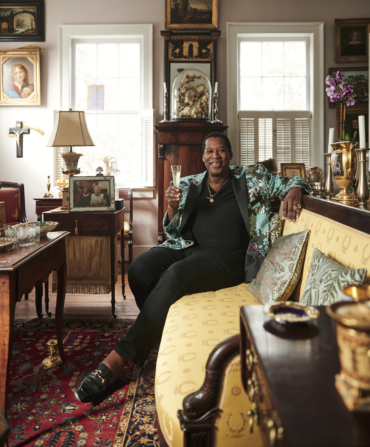Harrison Scott Key’s father, known as Pop, was “a large granite slab with eyeglasses and a heart condition.” He had a gut like an oaken cask and Popeye arms, and his “head was large and round, hard enough to be its own helmet.” As a traveling asphalt salesman for the Southland Oil Company, in Mississippi, “he sold the same roads he drove.” In his off-duty hours he fished, hunted, coached youth sports, watched hunting shows on TV, and tried to mold his son Harrison into the kind of boy who would also enjoy fishing, hunting, youth sports, and watching episodes of “Ted Nugent’s American Patriot Sasquatch Slaughter.” But this—to Pop’s sometimes violent dismay—was an exquisitely futile mission.
That mission supplies the framework for The World’s Largest Man, a loose and rollicking compendium of stories that’s billed as a memoir but comports itself more like a killer concept album. Pop comes stomping through nearly every story, first as a looming physical presence, later as an influence that at times the adult Key rejects and at other times ambivalently embraces, and always as a knot that the son cannot find a way to untie. “There was one great mystery,” Key writes of the Mississippi of his childhood, “more terrifying than Sasquatch, larger than the bulging Indian mounds, and right inside our house: my father. Who, it should be noted, was actually not larger than an Indian mound, but who, like many Native American burial sites, was rumored to contain bones.”
Pop doesn’t quite hew to the Great Santini model of Southern bad dad—he never drinks or hits Key’s mother—but cuts a familiar figure nonetheless: the sort of keg-chested bully who’d clear a prized bass hole by threatening interloping fishermen with a .22 pistol. When Key’s mother suggests alternative ways besides belt whipping to punish the boys (Key has an older half brother), perhaps a method “more humane,” Key writes, “Pop searched his vocabulary for this term, and found only a picture of a florist.” From the beginning, Key was his father’s opposite: docile, bookish, “prone to sweating and stories,” afraid of the woods, drawn to wearing bow ties. It’s a sitcom setup, but Key is too fresh a writer for canned jokes. The laughs he elicits are genuine, often unexpected, usually vocal.
This father-son polarity comes into keen focus when Pop moves the family from Memphis (“where a trailer was a thing you saw in a parade”) to his native rural Mississippi (where a trailer “was where you got your mail”), to take the asphalt job, when Key is in fourth grade. “For my tenth birthday,” Key writes, “Pop presented me with a Remington 12-gauge pump. ‘This gun right here can kill a grown man,’ he said, which made it sound like we’d been trying to kill grown men for many years without success.” A panoply of hunting misadventures follows, but Key nimbly shifts to a minor key when recounting some of these episodes, peeling back the jokes to reveal a load of dark emotion. It’s a trick he deploys several times in this book, giving it a sticky complexity, an unforeseen weight. The reader registers chest pain, and presumes all the laughing has caused a rib to fracture. But no. One’s heart has cracked.
Yet the laughter keeps coming, humor salving the hurt for reader and writer alike. Key has a knack for one-liners the way a machine gun has a knack for bullets. But he’s also equipped, like Mark Twain, with a magnificent ear: Some of the deepest laughs arise from his transcriptions of dialogue. The book loses some of its fizz in its final third, when Key—by this time a married father and a professor of English—leaves Mississippi for Savannah and trains his lens on the mustier comic landscapes of potty training and kooky neighbors. But then Pop stomps back onto the pages, with his trademark electric force, his return provoking a reckoning for Key: not only with his father, or at least his ideas about his father, but with a concept of Southern manhood—twisted and obsolete, perhaps, yet inviolable just the same—that his father represented and tried to inculcate in him. That reckoning, nuanced and sincere, calls back an earlier line from the book: “The South is a strange place,” Key writes, “…a place that dares you to simplify it, like a prime number, like a Bible story, like my father.”









